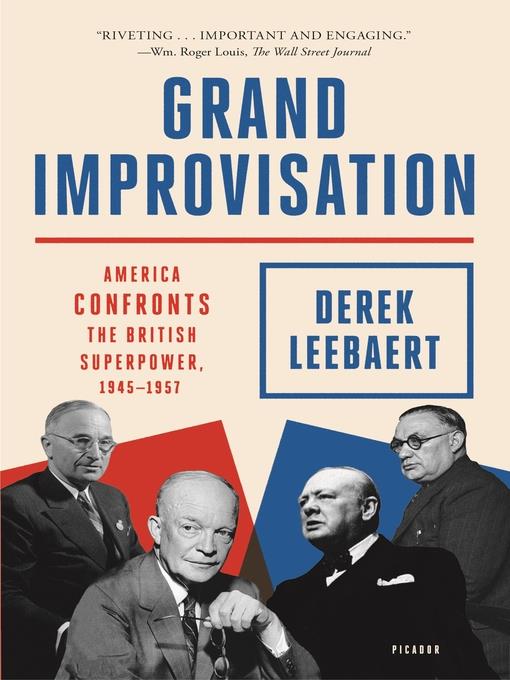
Grand Improvisation
America Confronts the British Superpower, 1945-1957
کتاب های مرتبط
- اطلاعات
- نقد و بررسی
- دیدگاه کاربران
نقد و بررسی

August 15, 2018
World War II ended in 1945. However, as this historical account reveals, it took another dozen years before Americans came to accept their role in the world with a new term: superpower.A much-repeated distillation of postwar world history goes something like this: Exhausted by six years of war and not wanting to fight further to retain an empire that was already an anachronism, Britain let the United States take over as the West's leading power. As global management consultant Leebaert (Magic and Mayhem: The Delusions of American Foreign Policy from Korea to Afghanistan, 2010, etc.) writes, chiding the likes of Henry Kissinger along the way, the truth is considerably more complicated. Britain fought hard to retain its empire and world influence, the U.S. was as much a rival as an ally at key points, and well into his administration, Dwight Eisenhower would acknowledge British hegemony in regions such as the Middle East. Things came to a head with the Anglo-French seizure of the Suez Canal in 1956, disrupting American efforts to outgame the Soviet Union in the region. But it was really the onset of the space race that put the U.S. in a different order from its erstwhile colonizer, revealing that "only the United States and the Soviet Union could compete at this level." America's rise as a superpower, Leebaert concludes after a long look at the years between World War II and Vietnam, came without a grand strategy or much interest in holding an empire of its own. The nation's dominance was instead largely economic and cultural, the product of "the sheer power of production, a culture of discovery and technology breakthroughs, and Hollywood's idealization of middle-class living, not from any expansionist yearnings in Washington." Of considerable interest is the author's look inside policy differences between the U.S. and Britain (and other Western powers) on the conduct of the wars in Vietnam, Korea, and other theaters.A sturdy exploration of lesser-known aspects of the Cold War, focusing on the rivalry between allies as much as enemies.
COPYRIGHT(2018) Kirkus Reviews, ALL RIGHTS RESERVED.

November 1, 2018
Ever since the end of World War II, many Americans have come to believe that the United States is the most dominant nation in the world, replacing the declining British empire. Leebaert (Magic and Mayhem) presents a counterargument in this smoothly written and well-sourced narrative. In the years after the conflict, contends Leebaert, the British sought to recover their sovereignty, but the effects of two world wars in the space of 25 years severely challenged its economy, and the empire struggled to recover its strength in the face of rising powers during the 1950s. Leebaert maintains that it was not until the Suez Crisis in 1956 that the British were finally forced to recognize that the United States no longer needed to defer to the British government in international matters. VERDICT This excellent history reflects the quality of scholarship that Leebaert displayed in his remarkable work, The Fifty-Year Wound: How America's Cold War Victory Shapes Our World. Recommended for all collections.--Ed Goedeken, Iowa State Univ. Lib., Ames
Copyright 2018 Library Journal, LLC Used with permission.

























دیدگاه کاربران